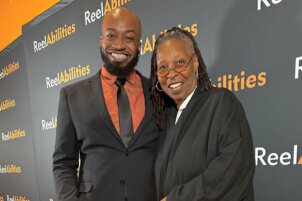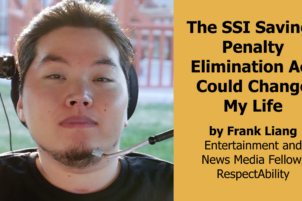
Alfred Olango
Alfred Olango, a Ugandan refugee, had mental health disability
Washington, Sept. 29 – It’s happened before and unfortunately will most likely happen again soon if nothing is done. The increasing number of people of color with disabilities being killed by police is unacceptable.
In the latest case, Alfred Olango, an African American man with mental health differences, was shot and killed by a police officer in San Diego, CA.
“Why couldn’t you tase him? I told you he is sick – and you guys shot him!” Olango’s sister is heard in a video recorded by a bystander who posted the video on Facebook. “I called police to help him, not to kill him.”
His sister called police saying he was acting strangely and not himself, informing them of his disability.
While Police Chief Jeff Davis said Olango, who was a refugee from Uganda, was unarmed, he also said the police felt threatened when Olango ignored calls to remove his hands from his pockets and pulled out a vaping cigarette.
“At one point, the subject rapidly drew an object from his front pants pocket, placed both hands together and extended them rapidly toward the officer taking up what appeared to be a shooting stance,” Davis said in a statement. “At this time, the officer with the electronic control device discharged his weapon. Simultaneously the officer with the firearm discharged his weapon several times, striking the subject.”
According to Mapping Police Violence, Olango became the 217th black American to be killed by police so far this year.
Statistics are not available for the number of Americans with disabilities who have been killed by police this year, but a third to one-half of all people killed by police are people with disabilities. Many of these people killed are both an individual of color and an individual with a disability.
Last week, Keith Lamont Scott was killed. In a video recorded by his wife, viewers hear her pleading with police, telling them that Scott does not have a gun but that he has a TBI, a traumatic brain injury, and is not going to harm them.
“It’s time we do something, because it needs to stop now,” RespectAbility President Jennifer Laszlo Mizrahi said. “Our recent report on disability and criminal justice reform has specific ideas for solutions, and it’s time to implement real change now.”
As outlined in RespectAbility’s report “Disability & Criminal Justice Reform: Keys to Success,” children with disabilities, especially those of color or who are new immigrants, often lack correct diagnoses, early interventions, resources, high expectations and work experiences. They face bullying, abuse or school suspensions and are among the most vulnerable when it comes to poverty, exploitation, victimization and violence. The report outlines the need for more sustained analysis into ways structural and individual ableism leads to the victimization of vulnerable individuals.
Said Mizrahi, “All too often the police do not know how to work with people with disabilities and they do exactly the wrong things. There are proven training programs that can end this challenge, and more areas need to implement then immediately.”
The disability lens is an important one that cannot be forgotten when examining cases like Olango’s and Scott’s. Their deaths exemplify the complexities of looking at the intersections of risk factors – including disability and racism.
“We cannot fix these problems unless we confront all the forms of oppression that intersect to ruin lives, absorb vast sums of money and shatter dreams. Disability is a critical part of that equation. More than 750,000 Americans with disabilities are currently behind bars in America, and time and again members of our community are killed by the police,” said Mizrahi.
For More Information
Lauren Appelbaum: 202-591-0703 | LaurenA@RespectAbility.org








